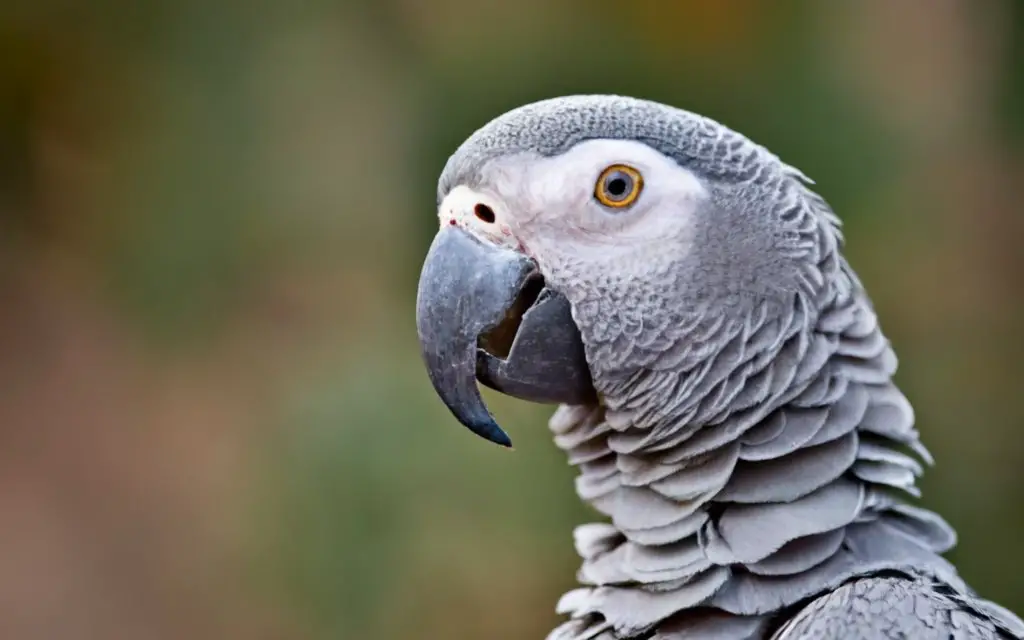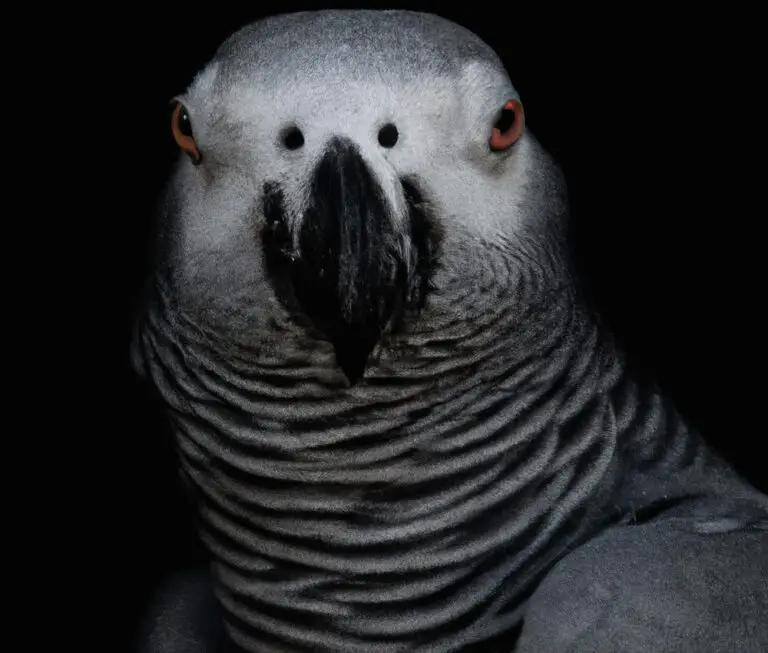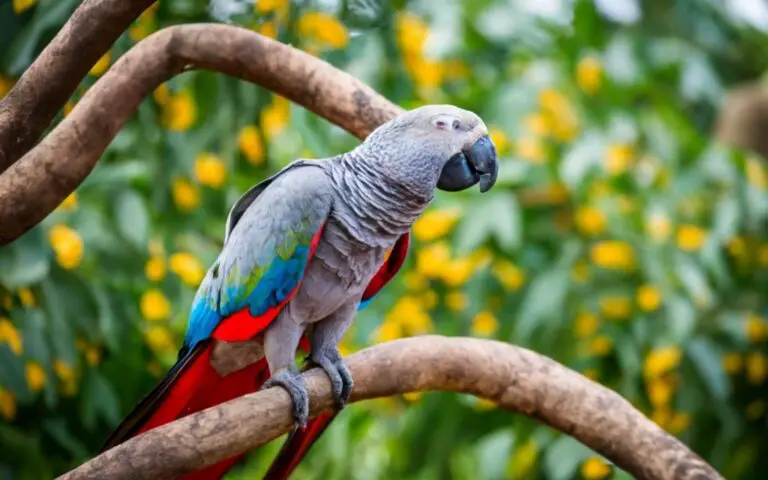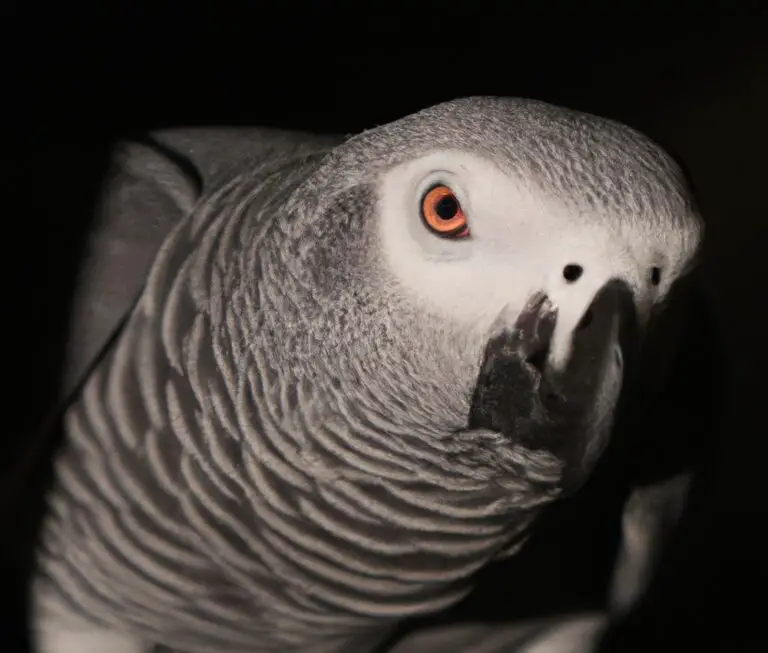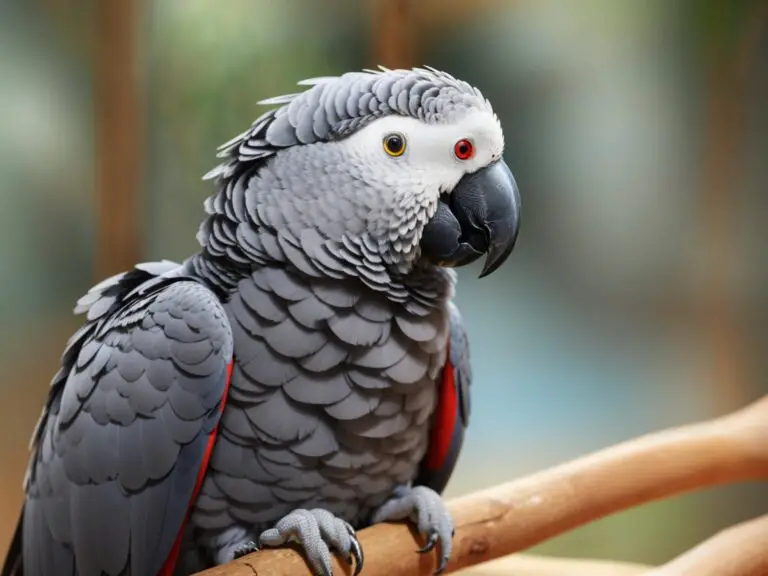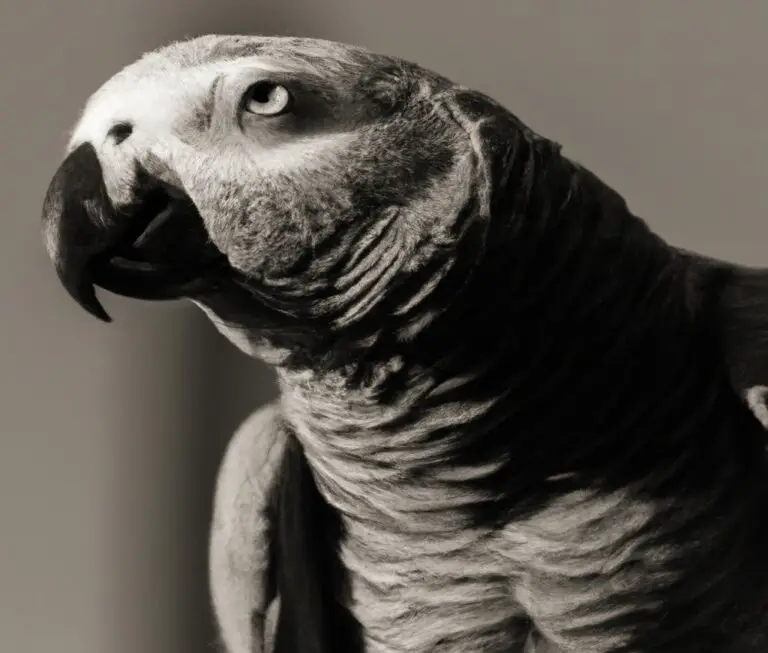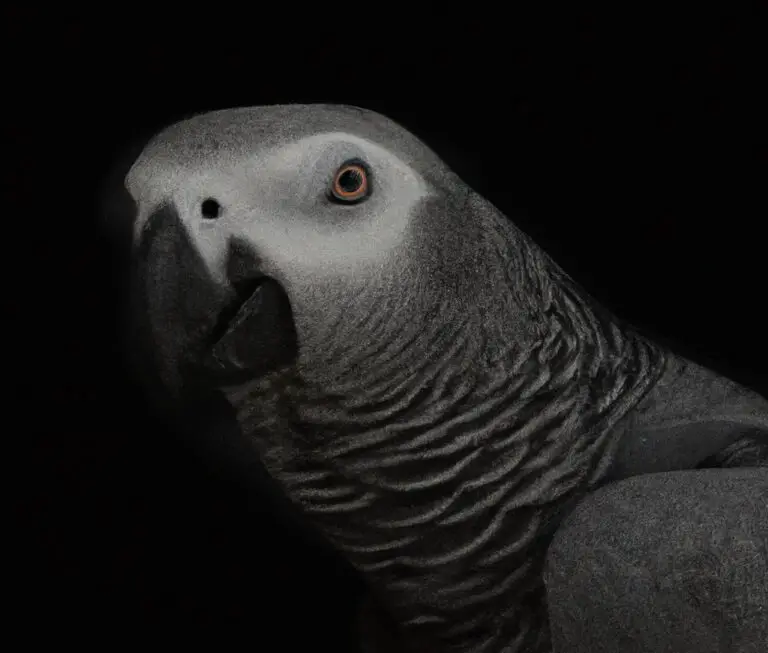Can African Grey Parrots Eat Raspberries?
Key Takeaways:
- African grey parrots can safely eat raspberries as part of their diet.
- Raspberries provide essential vitamins and antioxidants for the overall health of African grey parrots.
- Moderation is key when feeding raspberries to African grey parrots to avoid digestive issues.
- Introducing new foods like raspberries should be done gradually and with caution to ensure the bird’s well-being.
Have you ever wondered if you could share a delicious snack with your African Grey Parrot?
Well, I’ve got some juicy news for you! Raspberries, those vibrant and tangy fruits, might just be on the menu for your feathered friend.
As a bird enthusiast, I’ve done my research to find out if African Grey Parrots can munch on these delightful berries.
In this article, we’ll explore their natural and appropriate diets, the benefits of fresh fruits in their nutrition, and of course, whether raspberries are safe for these beautiful birds.
So, let’s dive right in and discover if your feathered companion can enjoy a raspberry feast!
| Question | Answer |
| Can African grey parrots eat raspberries? | Yes, African grey parrots can eat raspberries in moderation. |
What Do African Grey Parrots Normally Eat?
African Grey Parrots typically eat a diet that consists of nuts, seeds, fruits, and vegetables.
They may also consume some insects and small amounts of meat.
Natural Diet of African Grey Parrots in the Wild
The natural diet of African Grey Parrots in the wild consists mainly of fruits, nuts, seeds, and vegetation.
They enjoy a variety of fruits like figs, palm nuts, and berries.
They also eat flowers, leafy greens, and bark.
It’s important to replicate this varied diet in captivity to ensure their nutritional needs are met.
Appropriate Diet for African Grey Parrots in Captivity
African Grey Parrots in captivity require a well-balanced diet to thrive. Their diet should consist of high-quality pellets, fresh fruits and vegetables, and occasional nuts and seeds.
It’s important to avoid processed foods and foods high in fat and sugar.
Fresh water should always be available. Regular vet checkups can help ensure your parrot’s diet is meeting their nutritional needs.
Importance of Fresh Fruits in the Diet of African Grey Parrots
Fresh fruits are important in the diet of African Grey Parrots because they provide essential vitamins, minerals, and antioxidants. They also offer dietary variety and enrichment, promoting mental and physical health.
Incorporating a variety of fresh fruits like berries, apples, and oranges into their diet can support their overall well-being.
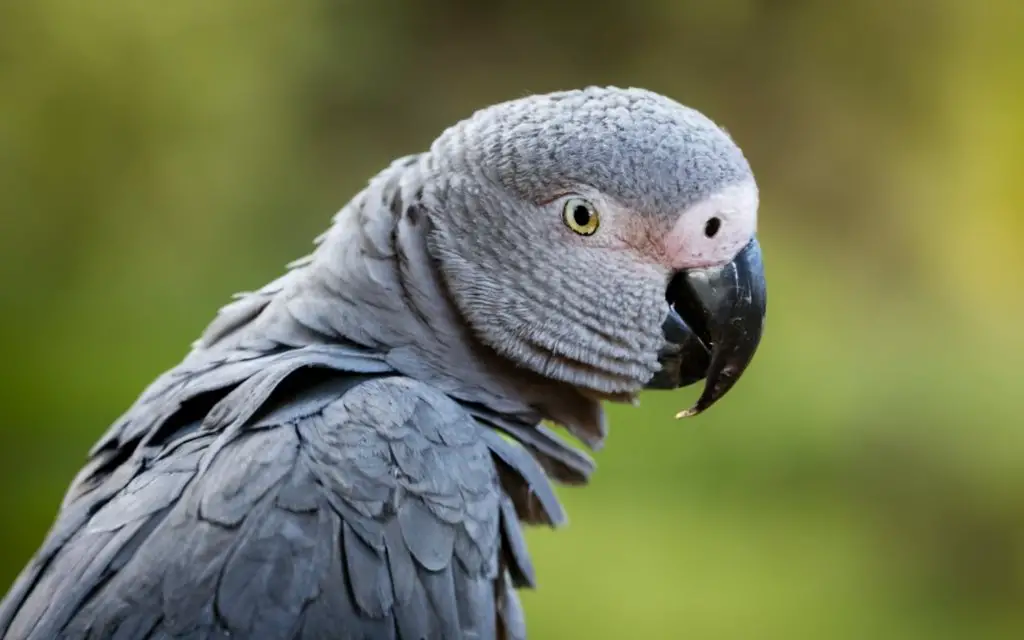
Are Raspberries Safe for African Grey Parrots?
Yes, raspberries are safe for African Grey Parrots.
Overview of Raspberries
Raspberries are delicious and nutritious fruits that African Grey Parrots can enjoy as part of their diet.
They are small and sweet with a vibrant red color.
Raspberries are packed with vitamins, minerals, and antioxidants, making them a healthy treat for your parrot.
However, it’s important to introduce them gradually and in moderation to ensure your parrot’s digestive system can handle them.
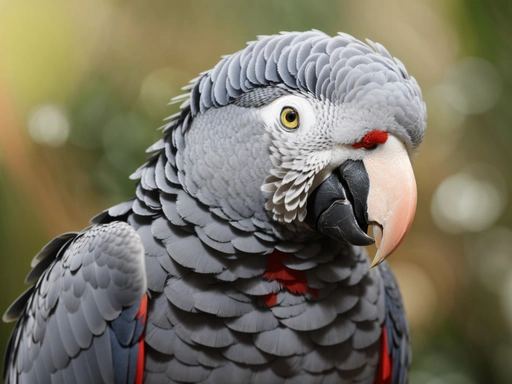
Nutritional Value of Raspberries
Raspberries are packed with nutrients that can benefit your African Grey Parrot.
They are rich in vitamin C, fiber, and antioxidants, which support their immune system, digestive health, and overall well-being.
Raspberries also provide essential minerals like potassium and manganese.
Additionally, their low sugar content makes them a healthy choice for your parrot.
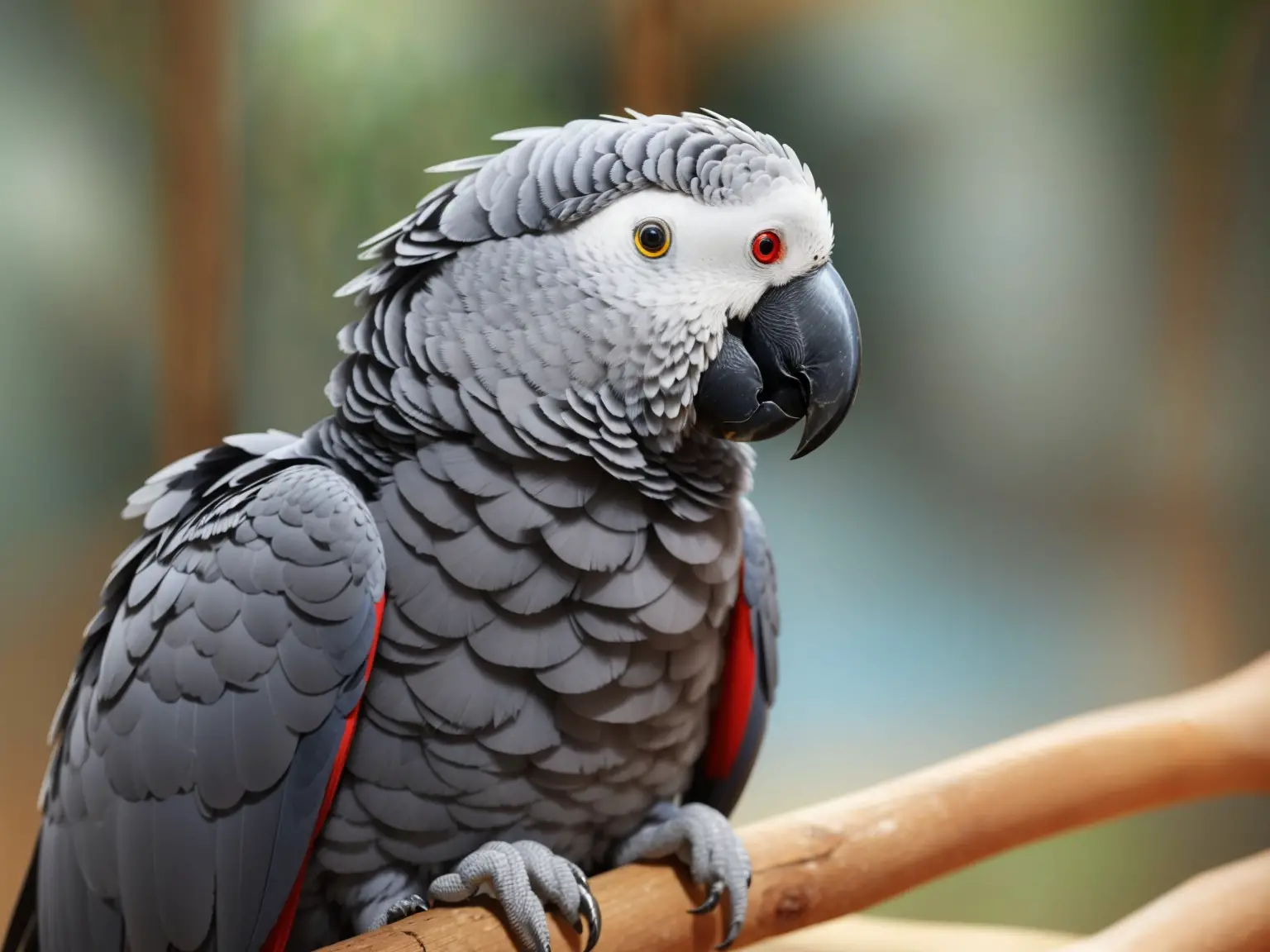
Potential Benefits of Raspberries for African Grey Parrots
Raspberries can be a great addition to an African Grey Parrot’s diet. They are packed with important nutrients like vitamin C, vitamin K, and antioxidants.
These nutrients can help support your parrot’s immune system, promote healthy feather growth, and provide overall nutritional benefits.
Just make sure to introduce raspberries gradually and observe your parrot’s reaction to ensure they can tolerate them well.
Introducing Raspberries into Your African Grey Parrot’s Diet
Want to add raspberries to your African Grey Parrot’s diet? Here’s how!
Proper Preparation of Raspberries for African Grey Parrots
To properly prepare raspberries for your African Grey Parrot, start by washing them thoroughly to remove any pesticides or dirt.
Remove the stems and any leaves, as they can be difficult for your parrot to digest.
Cut the raspberries into small, bite-sized pieces for easier eating.
Remember to offer fresh raspberries, as they can spoil quickly.
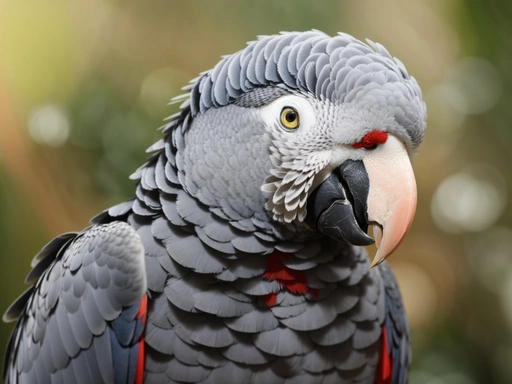
Recommended Quantity of Raspberries for African Grey Parrots
African Grey Parrots can enjoy raspberries as part of their diet in moderation.
It is recommended to offer a small portion, such as two to three raspberry pieces, a few times a week.
Be sure to observe your parrot’s reaction and adjust the quantity accordingly.
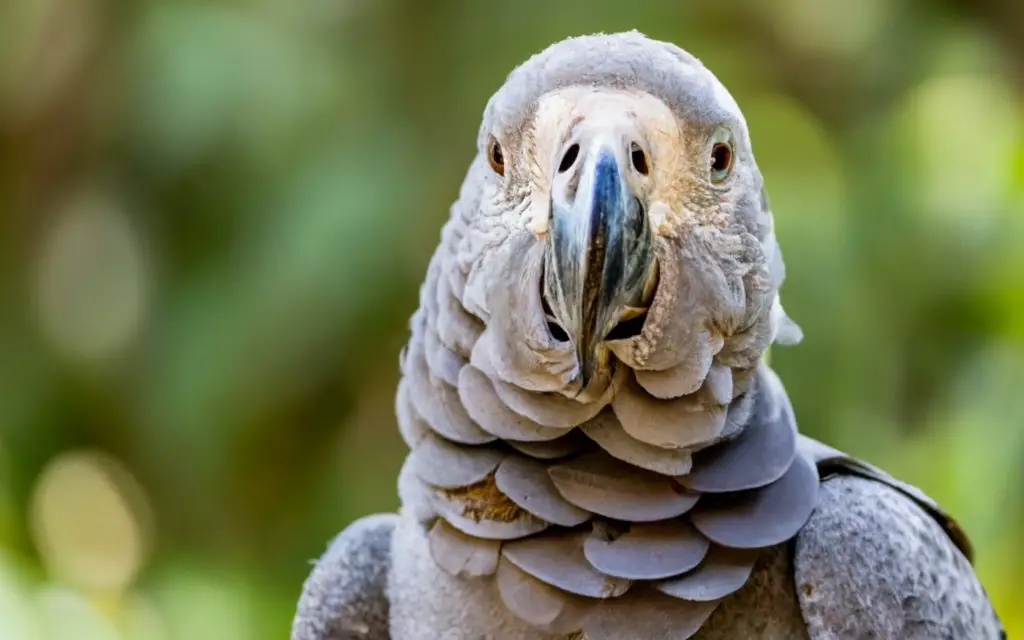
Observing Your Parrot’s Reaction to Raspberries
When introducing raspberries to your African Grey Parrot’s diet, it is important to observe their reaction. Start by offering a small piece and see how they interact with it.
Some parrots may immediately start eating and enjoying it, while others may show no interest.
Observe their body language, facial expressions, and overall behavior to determine whether they like raspberries or not. If your parrot shows enthusiasm and consumes them without any negative effects, then it’s safe to say that raspberries can be a part of their diet.
Other Fruits Suitable for African Grey Parrots
Variety in the African Grey Parrot’s Diet
African Grey Parrots require a diverse diet to maintain their health and well-being. Including a variety of fruits, vegetables, whole grains, and lean proteins is important.
This ensures they receive a range of nutrients and prevents boredom.
Offering different types of fruits, such as berries, apples, and melons, can provide a tasty and nutritious addition to their diet. Remember to introduce new foods gradually and limit sugary and fatty treats.
Keeping their diet varied will keep them happy and healthy!
Safe Fruits for African Grey Parrots
African Grey Parrots can safely enjoy a variety of fruits. Some safe options include apples, bananas, oranges, grapes, strawberries, and melons.
Be sure to wash the fruits thoroughly and remove any seeds or pits.
Introduce new fruits slowly to watch for any adverse reactions.
Guidelines for Introducing New Fruits to Your Parrot
Introducing new fruits to your parrot’s diet can be a great way to provide variety and nutrition.
Here are some guidelines to follow:
- Start with small portions: Begin by offering a small piece of the new fruit and observe your parrot’s reaction. If they enjoy it and show no negative symptoms, you can gradually increase the portion size.
- Introduce one fruit at a time: To avoid overwhelming their digestive system, introduce only one new fruit at a time. This will help you monitor their response and identify any potential allergies or digestive issues.
- Offer fresh and ripe fruits: Choose fresh and ripe fruits that are free from bruises or signs of decay. This ensures that your parrot gets the maximum nutritional benefits and enjoys the taste.
- Wash thoroughly: Prior to serving, wash the fruit thoroughly to remove any pesticides, dirt, or bacteria. This helps to keep your parrot safe from harmful substances.
- Remove seeds and pits: Some fruits have seeds or pits that can be toxic to parrots. Remove these before offering the fruit to your feathered friend. Examples include apples, cherries, and peaches.
- Monitor for any adverse reactions: After introducing a new fruit, pay close attention to your parrot’s behavior and droppings. If you notice any signs of discomfort, diarrhea, or changes in behavior, discontinue offering that particular fruit and consult a avian veterinarian.
Remember, each parrot is unique, and their tolerance to certain fruits may vary.
It’s important to proceed with caution and listen to your parrot’s preferences and needs.
Frequently Asked Questions about African Grey Parrots and Raspberries
Can African Grey Parrots Eat Raspberry Seeds?
Yes, African Grey Parrots can eat raspberry seeds. The seeds are safe for them to consume and can be a good source of fiber.
However, it is important to note that seeds should not make up a large portion of their diet.
Moderation is key to ensure a balanced and healthy diet for your parrot. Additionally, always wash the raspberries before feeding them to your African Grey Parrot to remove any residue or pesticides.
Can African Grey Parrots Eat Raspberry Leaves?
Yes, African Grey Parrots can eat raspberry leaves.
Raspberry leaves are safe for them to consume and can be a healthy addition to their diet.
Just make sure that the leaves are clean and free from any pesticides or chemicals.
It’s always a good idea to introduce new foods gradually and monitor your parrot’s reaction to ensure they tolerate it well.
Can African Grey Parrots Eat Raspberry Jam?
No, African Grey Parrots should not eat raspberry jam. Raspberry jam often contains added sugar and preservatives, which are not suitable for their diet.
Stick to fresh fruits like raspberries instead, as they provide more nutrition and are safer for your parrot to consume.
Final Verdict
African Grey Parrots can safely eat raspberries as part of a balanced diet.
Raspberries are packed with essential vitamins and minerals, providing a range of health benefits for these intelligent birds.
When introducing raspberries into your parrot’s diet, proper preparation is key.
Remove any seeds and wash thoroughly to ensure the fruit is safe for consumption.
It is essential to offer a variety of fruits to ensure a well-rounded diet for your African Grey Parrot.
Always monitor your parrot’s reaction to new fruits and consult with a veterinarian for specific dietary recommendations.
With the right knowledge and precautions, adding raspberries to your African Grey Parrot’s diet can be a delicious and nutritious treat.

